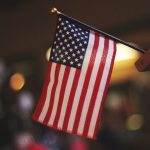American-led efforts to break the chokehold of Hamas on Gaza aid have suffered a hard setback as the U.S.-backed Gaza Humanitarian Foundation saw its distribution sites shut down under the terms of the October ceasefire, with U.S. officials saying future funding is uncertain and some centers already abandoned. The Associated Press reports the closures came as the ceasefire allowed U.N. convoys to expand and as political pressure mounted over the GHF’s controversial model.
Washington’s experiment was bold: bypass the old, broken systems that allowed Hamas to profit from and control supplies, and get food and medicine to starving civilians through secure, American-coordinated hubs. The plan quickly became a lightning rod, however, as private contractors, armored logistics, and the withdrawal of key partners exposed the project to relentless scrutiny and criticism from the mainstream humanitarian cartel.
Leadership turmoil and political attacks followed. The foundation lost its original director amid claims it could not adhere to neutral humanitarian principles, even while the State Department moved to inject emergency funds into the effort — a $30 million approval that showed Washington’s willingness to try a new approach even as partisans and career bureaucrats circled the wagons.
Meanwhile, U.N. experts and many international aid groups blasted the initiative as politicized and unsafe, demanding it be dismantled as reports mounted of dangerous distribution practices and tragic deaths near some sites. The chorus of condemnation from global bodies and activist groups made it politically costly for allies to keep pouring money into a program painted as illegitimate, regardless of the desperate human need on the ground.
Here’s the plain truth for patriotic Americans: when our country tries to lead to save lives and choke off terrorist profiteering, it should be supported, not strangled by politicized outrage and foreign policy cowardice. We must demand accountability from the institutions that blocked a workable alternative, back pragmatic, secure aid delivery that protects civilians, and never let ideological opponents weaponize compassion to reward terror. If Washington wants to help the innocent, it will fund bold solutions, hold bad actors to account, and stop letting global institutions and leftist elites dictate life-or-death policy from comfortable offices abroad.




